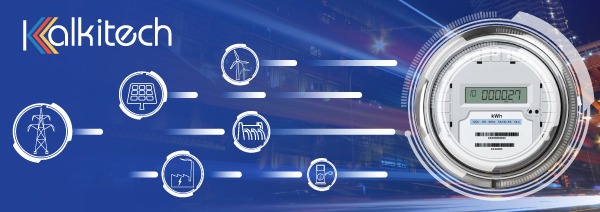Million Meter Simulator: Enhancing the Efficiency and Reliability of Large-Scale Smart Meter Deployments
Midhun Subramanian July 1, 2024
Midhun Subramanian July 1, 2024
As cities gear up to seamlessly integrate smart meters into their existing infrastructure, implementation agencies often complain about the inability to test mass command execution use cases or mass alarm reporting use cases from meters before systems go live. This prevents arriving at a benchmark or fine tuning the system configuration settings for meeting expected performance in mass operations. Customers often report about encountering challenges while performing disconnect functionality or while receiving alarm notifications from meters on a large scale. They are posed with significant challenges citing potential risk in the actual environment.
When one of our customers from the energy utility industry approached us to help them address such issues during smart meter deployment work, our team delved right into understanding the conditions under which the Head-End-Systems (HES) operates. We designed a tool that simulates meters capable of performing disconnect functionality, event triggers, alarms along with functionalities of an actual meter in a virtual environment for detailed testing at scale, which would otherwise be difficult to test on the field. The Million Meter Simulator, designed after careful understanding of metering systems, helps in testing real-world scenarios mimicking the conditions that the meters face on the field. With the simulator, our team enabled the customer to test their systems thoroughly and enhance the reliability of their smart meter deployment project.
Creating a virtual simulation environment for smart meters can indeed be highly beneficial for testing, assessing performance, identifying issues, and comparing different HES (Head End System) / MDMS (Meter Data Management System) systems and simulator helps in testing real-world scenarios by developing a virtual environment that mimics the conditions where these smart meters operate. This could include factors such as varying loads, network traffic, and potential interference.
Challenges associated with deployment of smart meters in a large-scale
Deploying a large number of smart meters can indeed introduce various challenges and issues. Here are some common problems that may arise, along with whether they can be identified using a simulator:
Kalkitech’s Million Meter Simulator Heralding a Change
At Kalkitech, our engineers have designed a versatile Million Meter Simulator that overcomes these challenges and more. It has proved itself for its efficiency in large-scale meter simulation, such as in deployment of smart meters in locations involving Advanced Metering Infrastructure (AMI) devices throughout the electricity distribution network.
The Kalkitech Million Meter Simulator uses DLMS communication protocol for its smart metering systems that facilitates communication between smart meters and head-end systems (HES) or meter data management systems (MDMS).
Million Meter simulator is a valuable tool for manufacturers, utilities, and software developers involved in smart metering projects. They enable efficient testing, validation, and optimization of systems, leading to more robust and reliable smart metering deployments on a large scale.

Here are some of the ways the Million-Meter simulator helps us to optimize performance of our smart grid network:
When a Head-End System (HES) is installed into a network and interacts with millions of meters, there is a risk if HES can really scale its data collection tasks and meet the KPIs set by the implementation agency. To prevent this, it is crucial to test the scalability of the HES before installation. Scalability testing allows us to analyze and estimate the communication success rate with the HES. This can be efficiently achieved using the simulator application.
Simulators are indispensable for evaluating disconnect control in smart grids. They enable engineers to simulate scenarios where they must precisely stop fractions of meters among millions deployed. This allows engineers to assess the accuracy and dependability of these controls before they are implemented. By conducting proactive testing, potential issues can be identified and resolved early, thereby enhancing the overall reliability and efficiency of the smart grid system.
Efficiency in handling real-time notifications and alarms is crucial in smart meter deployment projects to ensure timely response and maintenance. The Million Meter Simulator can significantly improve this aspect by providing a virtual environment for testing various scenarios.
With a simulator, utility companies can simulate firmware upgrade scenarios on a large scale to ensure that the process works smoothly and reliably across different types of meters.
By simulating various firmware versions and upgrade scenarios, they can test the compatibility of the meters with different firmware images and identify any potential issues or bugs before deploying updates to actual meters.
This helps in reducing the risk of firmware upgrade failures or compatibility issues that could disrupt service to customers or require costly field visits for manual intervention.
We can vouch for the usefulness of a simulator in handling scalability, firmware upgrades, disconnect control, events and alarms on a large-scale that can significantly streamline the process and mitigate potential risks associated with such deployments.
Simulator also plays a crucial role in visualizing and understanding the complexities of smart grid implementations. Involving numerous interconnected components such as meters, sensors, distribution networks, and control systems, simulators provide a graphical representation of these components and their interactions, making it easier to comprehend the system.
What makes Kalkitech’s simulator stand out in the field?
The simulator should not be limited to just testing capabilities, but also look at utilization across the full product lifetime, customer reach and flexibility in choosing the variants.
Here are some of the ways the Million-Meter simulator was designed to suit multiple requirements:
Conclusion
Simulator can significantly enhance the efficiency and reliability of large-scale smart meter deployments. It allows utility companies to identify and address potential issues proactively, reducing operational risks and ensuring a seamless transition to upgrade to smart metering infrastructure.
To summarize, while deploying millions of meters in a real-world scenario poses logistical challenges, the associated issues can be identified and addressed through simulation using the Million Meter Simulator from Kalkitech. By simulating various scenarios and stress-testing the system, you can proactively identify and mitigate potential issues before deploying the system at scale.

June 12, 2025
The DLMS Server SCL has been enhanced with several feature additions aimed at empowering meter manufacturers and OEMs with new capabilities, improved interoperability, and enhanced security. The following are the key customer benefits as well as the significance of these additions: Key Customer Benefits…
Know More
April 10, 2025
We are proud to announce that Kalkitech's Kalki.io platform has successfully completed the System and Organization Controls (SOC) 2 Type II examination. This significant achievement highlights our deep commitment to…
Know More
April 9, 2025
Residential Use Cases: Smart Homes: Homeowners can use IEEE 2030.5 to integrate smart home systems such as solar panels, smart meters, and electric vehicle chargers. This allows for dynamic energy…
Know More